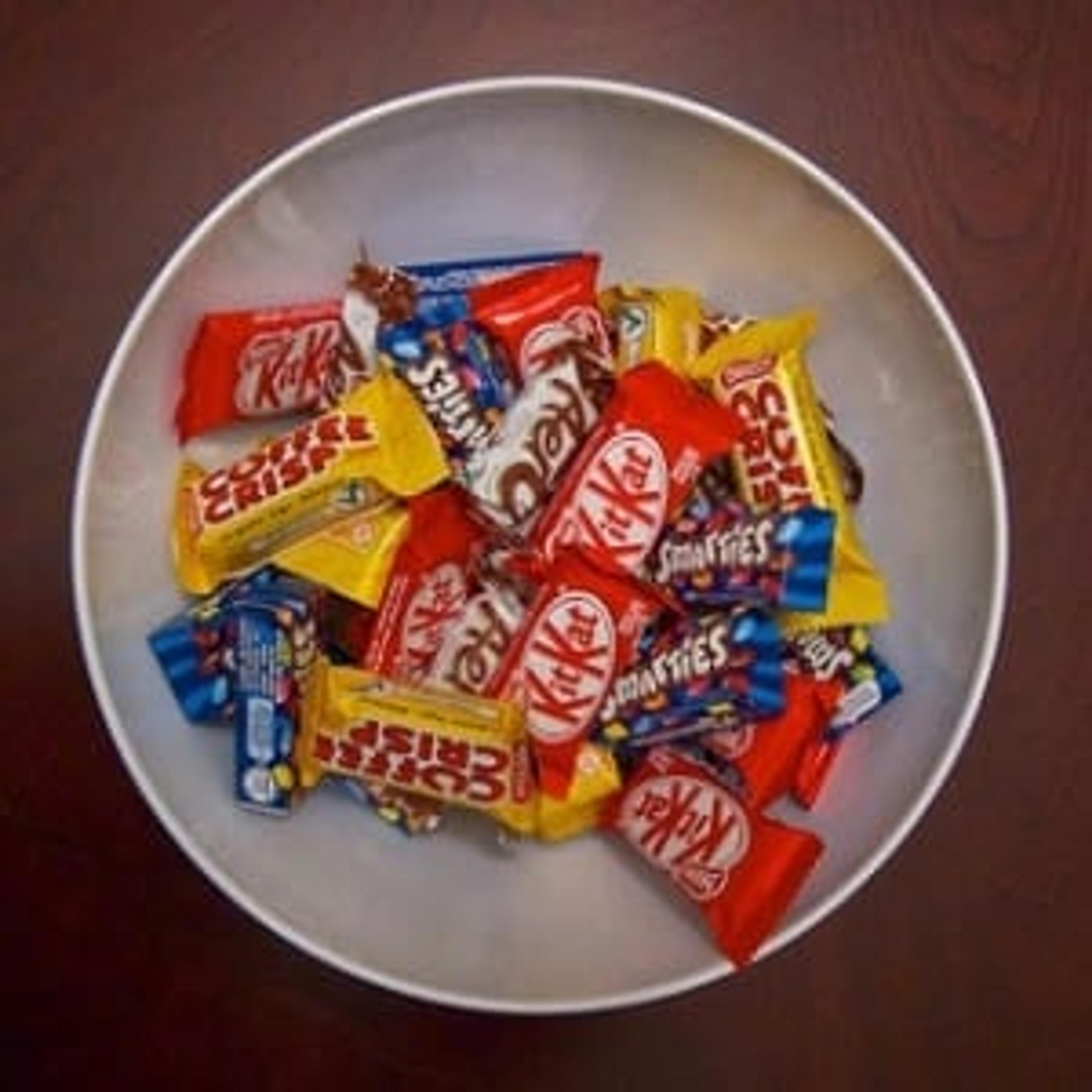Ask the Dentist: What are some healthier alternatives to candy on Halloween?

Dr. Gary Vance
| 2 min read

In the eyes of children, Halloween ranks right up there with Christmas and Hanukkah. Since Halloween is a day children always look forward to, it seems unfair to tell them they cannot have any of the candy they collect Halloween night. So what’s the solution?
Parents should limit the amount of candy their children consume and how they consume it. Allow your kids to only have a few pieces of candy each night. When you eat a few candy bars at once and then put the treats away, your saliva will naturally neutralize the sugars over the course of an hour or so.
When you constantly snack on candy, you’re exposing your teeth to acid throughout the day, which is too much for saliva to naturally wash away. Over time, this increases acid and can lead to plaque buildup and cause tooth decay. Another important factor to keep in mind is not to allow children to eat candy right before bedtime and to make sure they brush their teeth before turning in for the night.
If you plan to hand out Halloween candy this year, consider healthier alternatives to the traditional sugary snacks. These include:
- Chewing gum or candy with xylitol – a sugar that helps prevent tooth decay and also acts to remineralize teeth. Xylitol doesn’t have the negative effects of some other sugars.
- Any other type of candy that does not stick to your teeth
- Gift certificates to McDonald’s or Wendy’s
You can also encourage your kiddies to use a glow in the dark toothbrush and floss to keep the trick-or-treaters happy and their smiles cavity free. For more fun Halloween alternatives, check out the American Dental Association website.





